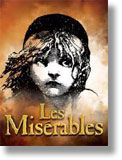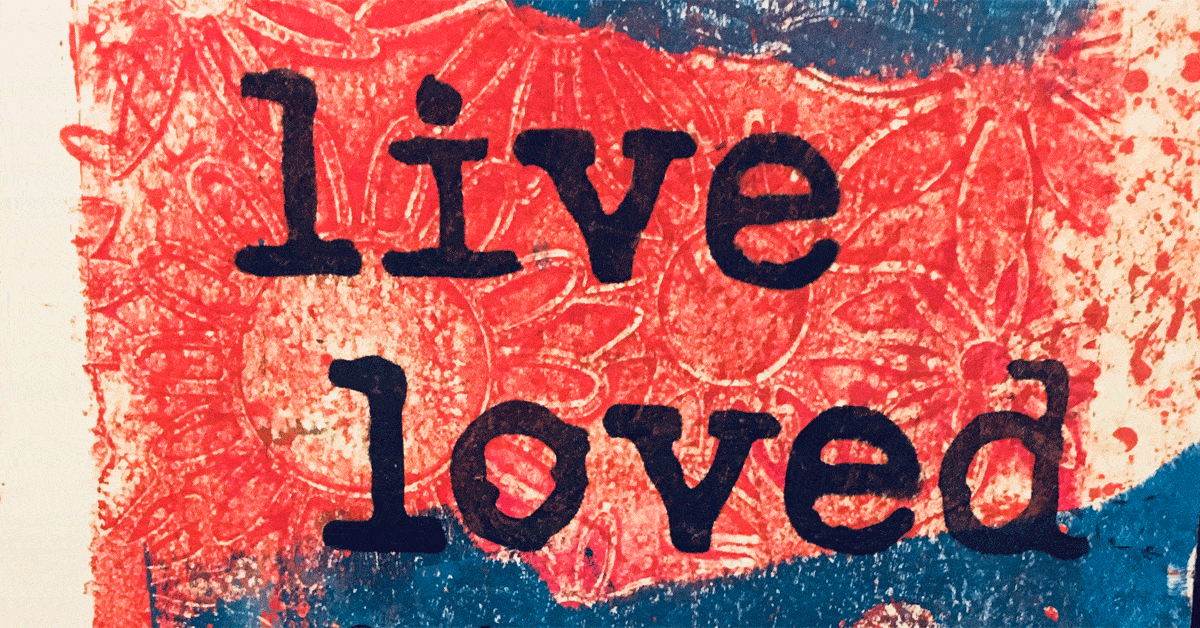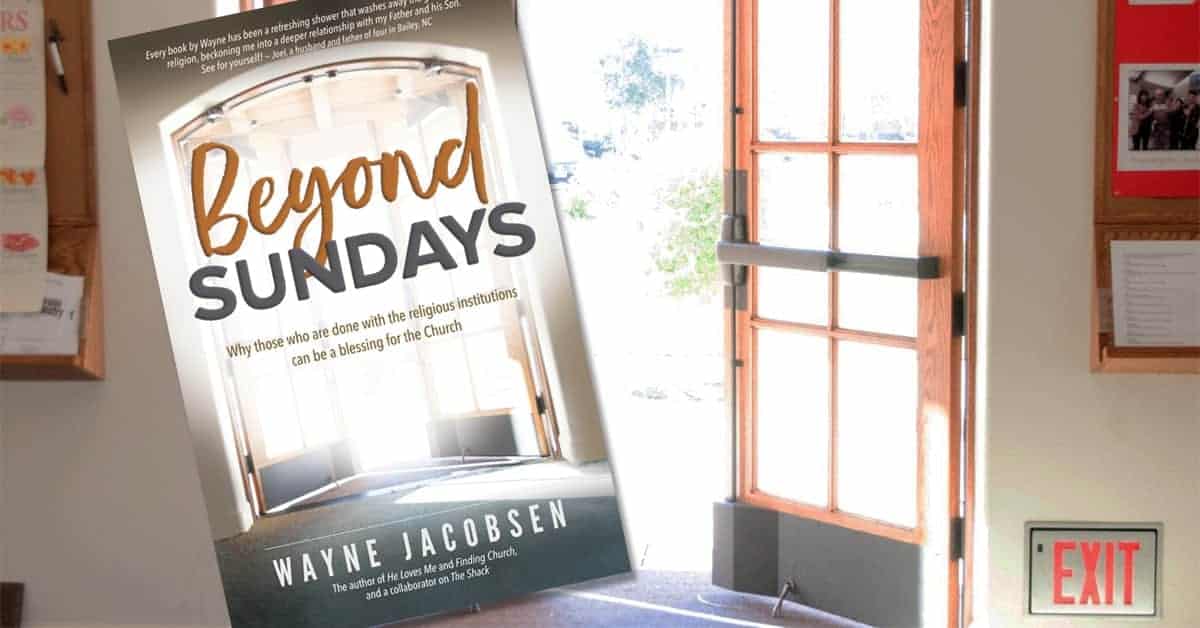 I finished reading the novel Les Miserables by Victor Hugo this week. It was fourteen hundred pages long, but it relates one of the greatest stories of redemption told in literature. I’ll warn you, it was a bit of work at times. There are pages and pages of deviations from the story to fill in the backstory of France’s penal system, the revolution, the Waterlook campaign by Napoleon, and even a tour of the sewer system. The story does bog down a bit when he gets into all that detail, but they are worth getting through to mine the amazing story of Jean ValJean and Cosette and how grace works beneath the surface of lives, even over years, to finally shine like the sun. This was particularly touching in this season of my life.
I finished reading the novel Les Miserables by Victor Hugo this week. It was fourteen hundred pages long, but it relates one of the greatest stories of redemption told in literature. I’ll warn you, it was a bit of work at times. There are pages and pages of deviations from the story to fill in the backstory of France’s penal system, the revolution, the Waterlook campaign by Napoleon, and even a tour of the sewer system. The story does bog down a bit when he gets into all that detail, but they are worth getting through to mine the amazing story of Jean ValJean and Cosette and how grace works beneath the surface of lives, even over years, to finally shine like the sun. This was particularly touching in this season of my life.
I’ve heard about the story, play, and movie for years, of course. I watched the movie a number of years ago, but didn’t fall in love with the story until I saw a YouTube video a while back of Susan Boyle singing “I Dreamed a Dream.” The words of that song haunted me and so I read the full lyrics on-line about being used by others, abandoned, and living with disappointed hopes in this age. Then Sara and I got to see the play this summer while we were in London and the full story suddenly had more meaning. When we returned home we rented the movie again and watched it. Over the last month I have been reading the book to immerse myself in the story. Surprisingly my daughter had decided to read it at the same time, so we have enjoyed talking through it together. She finished the book last night, I this morning.
As with most stories, the book is so much richer than can be put into a movie or a play. Only a book allows you to get in the mind of the characters and their internal struggles. The poignant closing scenes of the relationship between Jean ValJean, Marius, and Cosette undid me. Here’s a man that was so hungry he stole some bread as a young man and served 19 years in prison for it. He gets out only to steal again from a bishop, but instead of demanding justice the bishop shows grace to Jean by his personal generosity. His act of loving sacrifice weaves its way into the fiber of Jean’s being. He becomes a different person and learns to love others and show grace to them even at great personal cost to himself.
His loving is often tragic, because his first thought is not to protect himself and thus he gets used, abused, and tormented even by the people he treats with grace. Rather than defend himself, he simply keeps loving even when it costs him most dearly. He is misunderstood and doesn’t try to clear the record. He forsakes his own personal happiness to ensure it for others. And because people only want to use him, they take advantage of his graciousness and miss who he really is.
What I love about this story is that while it is true that those you love the most will often lie about you and misuse you for their own gain, loving them anyway puts grace into the world to counteract all the selfishness already there. In the end, love changes lives and calls into question the way people live in their own self-interest. Grace is worth sharing, even when the objects of that grace don’t understand it. In the end love wins—not everyone, of course, but enough to make it glorious all the same.
The law is a cruel taskmaster, often used by those who wish to exploit others to make themselves feel important. It often weighs heaviest on the most marginalized in society and is used to dehumanize them. But love is the anti-matter to law! Love is the more powerful. It has the power to transform people and lift them out of their misery. Live by law and you become mean and empty; live by love and even when painful a greater purpose transforms your being.
In a note to the Italian publisher Victor Hugo wrote about the universal application of his story. Here are some excerpts:
The sores of the human race, those great sores, which cover the globe, do not halt at the red or blue lines traced upon the map. In every place where man is ignorant and despairing, in every place where woman is sold for bread, wherever the child suffers for lack of the book which should instruct him and of the hearth which should warm him, the book of Les Miserables knocks at the door and says: “Open to me, I come for you.”
At the hour of civilization through which we are now passing, and which is still so sombre, the miserable’s name is Man; he is agonizing in all climes, and he is groaning in all languages. Your Italy is no more exempt from the evil than is our France… Like us, you have prejudices, superstitions, tyrannies, fanaticisms, blind laws lending assistance to ignorant customs. Have you not indigent persons? Glance below. Have you not parasites? Glance up. Does not that hideous balance, whose two scales, pauperism and parasitism, so mournfully preserve their mutual equilibrium, oscillate before you as it does before us? What is the amount of truth that springs from your laws, and what amount of justice springs from your tribunals? …This book, Les Miserables, is no less your mirror than ours certain men, certain castes, rise in revolt against this book,– I understand that. Mirrors, those revealers of the truth, are hated; that does not prevent them from being of use.
As for myself, I have written for all, with a profound love for my own country, but without being engrossed by France more than by any other nation. In proportion as I advance in life, I grow more simple, and I become more and more patriotic for humanity… Whether we be Italians or Frenchmen, misery concerns us all. Ever since history has been written, ever since philosophy has meditated, misery has been the garment of the human race; the moment has at length arrived for tearing off that rag, and for replacing… the sinister fragment of the past with the grand purple robe of the dawn.
The law can so easily be manipulated by the wealthy and abused by those who lie without conscience. Into the misery of our world, God speaks his love in the language of grace. Only those who are truly changed by that reality become a light in the world, treasure all of their relationships, and offer hope to those who are lost in the darkness.
After reading this book, I want even more to be that simple light, a voice of grace, to the next person I meet today. There is nothing more real, more significant, or more transforming than love freely offered, especially when it costs us something.








Love what you wrote…I too want to bring more beauty to the world….where ever that is each moment….as a wife to my husband…as a mom to my kids….as a daughter to my aging parents and the ripples move out to the world around me. Les Mirerables is hands down my favorite movie. The Lord has used each time I have watched it. I don’t know if I am brave enough to tackle the book….but with my love for the movie….maybe it’s worth a shot.
Blessings to you and Sara…..
great post, wayne. for a shorthand treatment of the book, i highly recommend the movie version with liam neeson.
Love what you wrote…I too want to bring more beauty to the world….where ever that is each moment….as a wife to my husband…as a mom to my kids….as a daughter to my aging parents and the ripples move out to the world around me. Les Mirerables is hands down my favorite movie. The Lord has used each time I have watched it. I don’t know if I am brave enough to tackle the book….but with my love for the movie….maybe it’s worth a shot.
Blessings to you and Sara…..
great post, wayne. for a shorthand treatment of the book, i highly recommend the movie version with liam neeson.
Very well said! Just lovely!
Totally agree, Wayne! I’ve often thought Les Mis is probably the best story about law vs. love outside of the Bible. Great stuff.
Very well said! Just lovely!
Totally agree, Wayne! I’ve often thought Les Mis is probably the best story about law vs. love outside of the Bible. Great stuff.
Hi Wayne,
I enjoyed this post. I have loved Les Miserables – it gripped me (in the musical form) when I heard it at 15 – decided to take singing lessons just so I could sing these songs which still move me to tears at 38 – been singing them now for 23 years, now teach them in my business as a singing teacher. The message ALWAYS brought me to tears, I read the book early on and loved it – even the impenetrable bits! I even love school productions (not always well sung!) because the message comes through. Grace, love. It is wonderful when new teenagers come in the studio door who have fallen in love with Les Mis afresh – this message gets the heart and moves people, and they don’t even know why. Surely why it is one of the longest running shows!!
Love the podcasts, blogs etc. Thanks for the Transistion series. Sorry for the essay!
Dale
Hi Wayne,
I enjoyed this post. I have loved Les Miserables – it gripped me (in the musical form) when I heard it at 15 – decided to take singing lessons just so I could sing these songs which still move me to tears at 38 – been singing them now for 23 years, now teach them in my business as a singing teacher. The message ALWAYS brought me to tears, I read the book early on and loved it – even the impenetrable bits! I even love school productions (not always well sung!) because the message comes through. Grace, love. It is wonderful when new teenagers come in the studio door who have fallen in love with Les Mis afresh – this message gets the heart and moves people, and they don’t even know why. Surely why it is one of the longest running shows!!
Love the podcasts, blogs etc. Thanks for the Transistion series. Sorry for the essay!
Dale
I read Les Miserables years ago, and have seen the musical–of course. The
I read Les Mis years ago, and was moved with the timeless and exaltd themes. I believe that they struck me so poignantly because of the hyper-legalistic environment in which I was raised. At 51, I am still eradicating the straitjacket of “law,” which law was elevated above absolutely everything else. The individual was never valued for the unique and wonderful creation that it pleased God to craft.
You’ve spoken beautifully about the contrast of love vs. law, and I would add only one thing. Extending love–especially to the otherwise unlovable–gifts the recipient with value. Sometimes it is the one thing that is missing from his or her life, and bestowing value, particularly when it is undeserved, magnifies the gift and sends it deeper into the heart.
It is extraordinarily difficult (for me!) to be that kind of “lover,” and it costs greatly–sometimes painfully. It is, however, the most overtly God-like behavior one human being can gift to another, and the reminder to try it again(!) is always a timely one.
Thank you.
I read Les Miserables years ago, and have seen the musical–of course. The
I read Les Mis years ago, and was moved with the timeless and exaltd themes. I believe that they struck me so poignantly because of the hyper-legalistic environment in which I was raised. At 51, I am still eradicating the straitjacket of “law,” which law was elevated above absolutely everything else. The individual was never valued for the unique and wonderful creation that it pleased God to craft.
You’ve spoken beautifully about the contrast of love vs. law, and I would add only one thing. Extending love–especially to the otherwise unlovable–gifts the recipient with value. Sometimes it is the one thing that is missing from his or her life, and bestowing value, particularly when it is undeserved, magnifies the gift and sends it deeper into the heart.
It is extraordinarily difficult (for me!) to be that kind of “lover,” and it costs greatly–sometimes painfully. It is, however, the most overtly God-like behavior one human being can gift to another, and the reminder to try it again(!) is always a timely one.
Thank you.
Take your post, and the 2nd paragraph of Li’s comment and we have come to the heart of what divides or connects us both to God and to others. God has given you the gift to use simple words to share great understanding and i am grateful.
Take your post, and the 2nd paragraph of Li’s comment and we have come to the heart of what divides or connects us both to God and to others. God has given you the gift to use simple words to share great understanding and i am grateful.